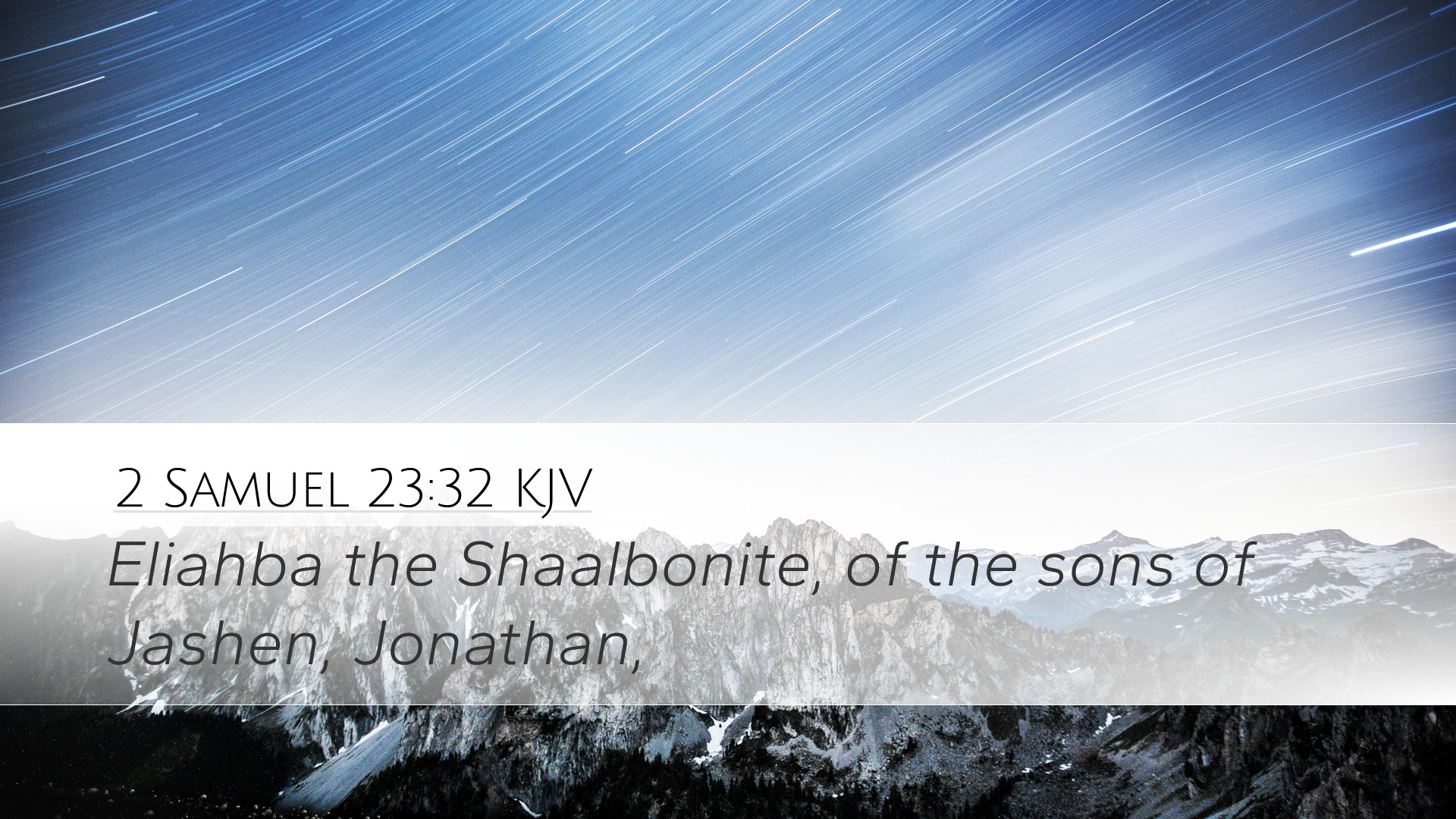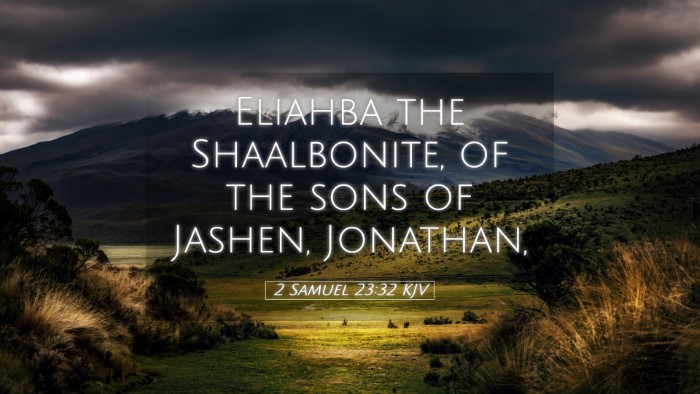Commentary on 2 Samuel 23:32
Verse Context: 2 Samuel 23:32 reads, "The sons of Jashen, Jonathan, the son of Shageh, the Hararite." This verse is part of the concluding chapter of 2 Samuel, detailing the exploits of David's mighty men, highlighting their valor and the important roles they played in his reign.
Overview
This verse features a noteworthy character among David’s mighty men, illustrating the broader theme of loyalty, bravery, and the personal stories of those who supported King David through trials and triumphs. In reflecting on this verse, it is essential to examine the significance of these individuals within the larger narrative of David’s kingship.
Insights from Commentaries
Matthew Henry's Commentary
Matthew Henry emphasizes the importance of remembering those who have been valiant and loyal in the service of the king. He notes that these men were not mere warriors but integral parts of David's administration and support system.
- Loyalty and Service: Henry highlights that Jonathan's lineage, while less prominent than others, should not diminish the honor given to those who served nobly.
- Divine Providence: He also underscores that God raises up individuals for specific purposes, suggesting that each mighty man had a role determined by divine intention.
Albert Barnes' Notes on the Bible
Barnes provides a historical perspective, discussing the cultural and military contexts of 2 Samuel. He notes that names such as Jonathan and Shageh reflect the diverse backgrounds of David’s supporters. Barnes highlights the following points:
- Military Achievement: The mention of these individuals serves to commemorate their accomplishments and sacrifices. It acknowledges their contributions to David's victories.
- Continuity of Leadership: He points out that the listing of such names serves as a reminder of the continuity in leadership and the value of community in achieving great goals.
Adam Clarke's Commentary
Adam Clarke takes a more exegetical approach, analyzing the original Hebrew text to derive deeper meanings. Clarke discusses:
- Character Qualities: He posits that the names chosen for remembrance are indicative of specific virtues such as bravery and perseverance, which exemplified true leaders in the community.
- Covenant Relationships: He places emphasis on the relationships formed through shared battles and the covenantal nature of loyalty that these men exemplified, paralleling God's covenant with Israel.
Thematic Reflections
When considering the implications of 2 Samuel 23:32, there are several themes that emerge:
- Honoring Servants: There is a theological imperative for the church to honor its servants and those who, sometimes in obscurity, work for the kingdom of God.
- Collective Identity: The listing of these men also serves to build a sense of collective identity within David's kingdom and the broader people of Israel, underscoring the importance of community.
- Spiritual Reflection: The narrative invites spiritual reflection on our contributions to God’s work, urging believers to consider how they are serving in their own contexts.
Application for Today
While 2 Samuel 23:32 documents a historical account, its lessons endure for contemporary believers:
- Recognizing the Unsung Heroes: Just as David recognized Jonathan and his fellow warriors, we are called to acknowledge those unsung heroes in our communities who often work behind the scenes.
- Encouragement in Service: For pastors and leaders, this verse serves as a reminder that every role within the church is significant, and contributions should be valued regardless of their visibility.
- Legacy of Faithfulness: The study of such figures challenges us to live lives of faithfulness that can inspire future generations within the faith.


